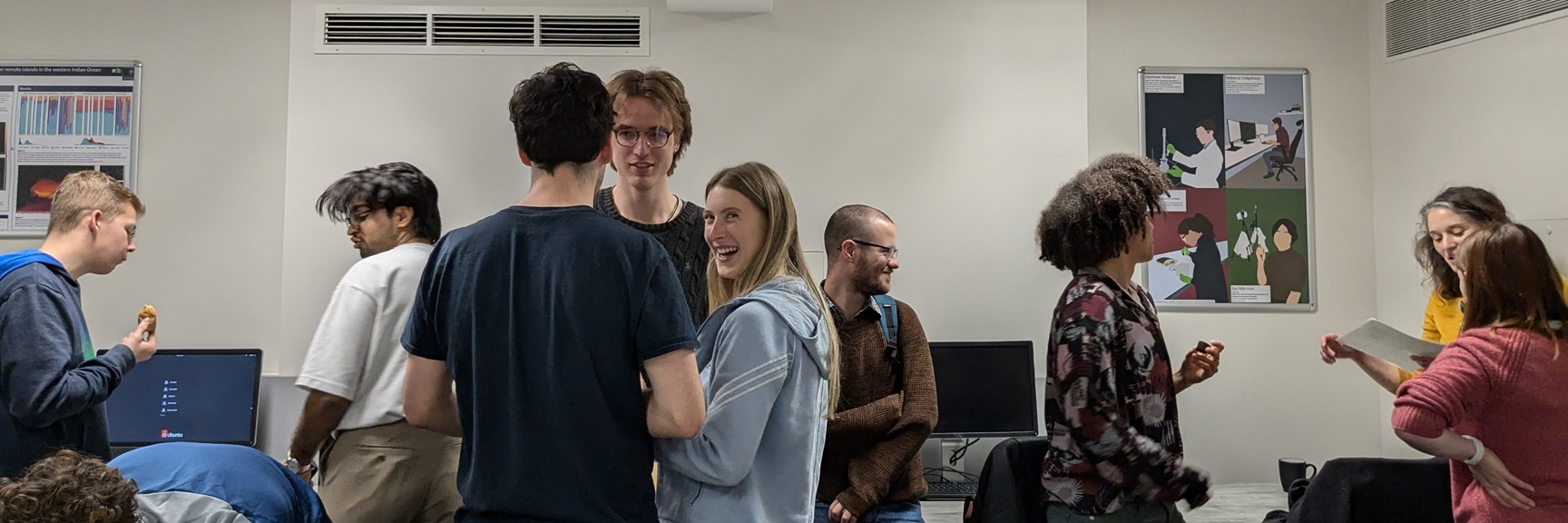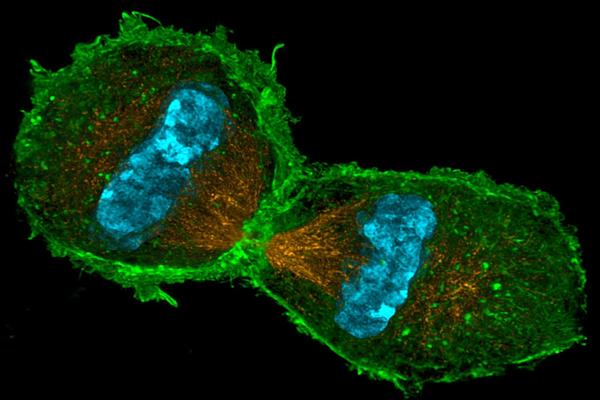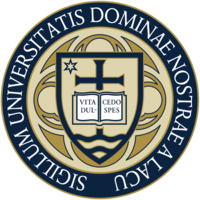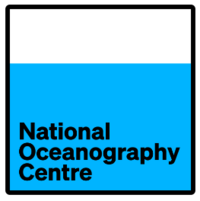Welcome

The world faces unprecedented challenges, from climate change and food security to infectious diseases, biodiversity declines and sustainability. The Interdisciplinary Life and Environmental Science Landscape Award (ILESLA) will train a new generation of creative, collaborative and entrepreneurial researchers who are equipped to meet these complex, cross-disciplinary challenges. These future leaders will have the knowledge and skills to generate innovative solutions that integrate science across BBSRC and NERC remits, and to conduct curiosity-led research that generates far-reaching insight into biological and environmental systems, and their interactions.
The ILESLA is the successor to the BBSRC Interdisciplinary Bioscience and the NERC Environmental Research DTPs and builds on their success. This new programme will cover the full remit of both of the preceding programmes. Students will tackle research challenges across five interconnected themes representing the strengths and breadth of research within our partnership:
Climate and Earth
|
Advancing understanding of climate and earth systems
Research topics include, but are not limited to: Earth observation, natural resources, past/future climates, predictability of weather and climate, volcanology, seismology, global biogeochemical cycles, hazards, extreme events, terrestrial and freshwater landscapes, atmospheric science, oceanography, cryospheric science, water security, geoengineering |
Biodiversity and Sustainability
|
Sustainable approaches to support food, feed and energy security, manufacturing and biodiversity. Research topics include, but are not limited to: crop science, agriculture, aquaculture, fisheries, food systems, forestry, nature recovery, systematics, climate resilience, biocultural heritage, life cycle assessment, supply chains, biomanufacturing, the circular economy, waste management, conservation, ecosystem services and nature-based solutions |
Animal and Human Health
|
Innovative approaches to understand and support animal and human health.
Research topics include, but are not limited to: infectious diseases of animals, antimicrobial resistance, immunology, microbiology, microbiome science, healthy aging, pharmaceutical and vaccine production, regenerative medicine, diet and nutrition, diagnostics, sensors and improving environmental quality to benefit human and animal health *The programme does not support research focused on specific human diseases and human disease processes or abnormal conditions.
|
Rules of Life
|
Frontier science addressing fundamental questions about biological organisms and ecosystems. Research topics include, but are not limited to: integrative biology, developmental biology, physiology, evolutionary biology, paleobiology, physiology, biochemistry, cellular mechanisms, genetics, animal behaviour, structural biology, neuroscience, astrobiology, biophysics and ecological processes. |
Transformative Technologies
|
Development of tools and technologies underpinning biological, archaeological and environmental research.
*The majority of research projects undertaken by our students across all five themes involve 'transformative technologies', which include advanced imaging and data analysis techniques, the development and application of new and emerging methods and technologies, mathematical modelling, 'omic and systems approaches. Students in the “transformative technologies” theme usually conduct research that is primarily focused on the development of new scientific technologies, methods, software or modelling approaches; often working at the interface between life or environmental and physical sciences. Research topics include, but are not limited to: systems approaches, computational biology, mathematical modelling, statistics, data science, artificial intelligence, machine learning, advanced experimental techniques, imaging, spectroscopy, synchrotron science, neutron science, cryo-EM, drones, earth observation techniques, engineering biology, bioinspired design, data assimilation, state estimation and advanced computational techniques
|

The six hosting partners (University of Oxford, Oxford Brookes University, The Open University, The Pirbright Institute, Diamond Light Source and ISIS Neutron and Muon Source), bring together a community of over 500 research groups that conduct world-leading research spanning BBSRC and NERC remits. With additional support from a consortium of world-leading academic institutions, facilities, research centres, industry and third-sector organisations, students will benefit from co-design of research and training with organisations that provide the UK’s national capabilities in synchrotron and neutron science, research into viral diseases, weather, oceanography, climate change, land and freshwater ecosystems; and imaging capabilities that range from subatomic to Earth observation

Based in the University of Oxford’s innovative Doctoral Training Centre (DTC), students will undertake an in-depth programme of cohort-based, experiential learning that:
-
Provides a strong foundation in the computational and quantitative techniques that underpin interdisciplinary research;
-
Further develops these skills in a research context through rotations and team projects;
-
Delivers the benefits of advanced training within and across themes, and at a national level through a new Doctoral Landscape Training Network;
-
Builds strong connections within and between cohorts, supporting learning, sharing best practice and inspiring interdisciplinary innovation;
-
Develops communication skills and connections with broader communities through teaching, outreach and policy engagement;
-
Provides work experience through internships to engage students with the real-world applications of research and embed transferable skills in a non-academic context;
-
Fosters an entrepreneurial spirit through an innovative entrepreneurship training programme that will inspire and support students and staff to commercialise ideas and develop new ventures;
-
Connects students with business to co-create industrially relevant projects through a ground-breaking Open Innovation Industrial Consortium.
During their first year, students will initially undertake foundation training in computational, quantitative and research skills at the University of Oxford’s Doctoral Training Centre. They then undertake rotation projects with two different supervisory teams and a long format team project before deciding on the supervisory team and research topic for their substantive doctoral project. All students are required to undertake a 12-week internship with a non-academic partner organisation. Students undertaking projects with an industrial partner/non-academic partner undertake their internship with that partner organisation
The Open Innovation Industrial Consortium (Open-IIC) brings together an alliance of industry partners who are interested in undertaking research at the frontiers of life and environmental science. Participation in Open-IIC is subject to a Open Innovation agreement; all projects offered through Open-IIC will be industry-derived and jointly supervised by the industrial partner and an academic supervisor at the University of Oxford, Oxford Brookes University or the Open University, as well as supervisors employed by other ILESLA partners. Our industrial partners will also actively contribute to training offered within ILELSA. A subset of ILELSA students who are committed to working with industry will hold Open-IIC studentships and will undertake research projects with one or more Open-IIC partners. Students within the main programme will be able to optionally choose Open-IIC projects if they are not taken up by students holding Open-IIC studentships.
Open-IIC projects will be selected through a 2-rotation project process, so that an informed choice can be made by students. This means that the supervisory team, student and industry partner can design substantive DPhil/PhD projects that build on understanding developed through the rotations of mutual interests, capabilities and strengths.
In practical terms the open IP approach ensures that all student research is visible to all partner organisations, and if any IP arises from that work then the company sponsoring the research has first refusal on exploiting that research (jointly with the university, universities or research organisations at which the student is registered and at which the students’ supervisors are employed). From a student perspective this means that students can talk freely to each other and to all of the academic supervisors without concerns about IP, so we can build a true cohort approach.
We welcome queries from organisations that are interested in joining Open-IIC as an industrial partner. Please email enquiries@ilesla.ox.ac.uk
|
AstraZeneca Plc 
|
CCDC 
|
GE Healthcare 
|
Glaxo SmithKline plc. 
|
Hoffman La Roche 
|
Lhasa Ltd. 
|
LifeArc 
|
|
Procter and Gamble Co. 
|
Immunocore 
|
Novo Nordisk and NNRCO 
|
Syngenta 
|
Oxford Drug Design 
|
IBM 
|
University of Notre Dame, Indiana. 
|
In addition to the industrial partners engaged in Open-IIC, we have links to a range of public and third sector organisations who will collaborate with academic supervisors across the six core ILESLA organisations to offer rotation and DPhil/PhD projects, ensuring that supervisors and students are able to co-create projects that bring together researchers with world-class expertise across a wide range of research areas to address real-world problems.
|
STFC Central Laser Facility, Harwell 
|
Research Complex at Harwell 
|
The Met Office 
|
National Centre for Earth Observation 
|
National Centre for Atmospheric Science 
|
National Oceanography Centre 
|
Natural History Museum London 
|
|
Royal Botanic Gardens 
|
European Space Agency 
|
The Rosalind Franklin Institute 
|
Earthwatch 
|
Centre for Ecology and Hydrology 
|
Natural England 
|
Zoological Society Institute of Zoology 
|
|
The Mary Lyon Centre, Harwell 
|
RAL Space, Harwell 
|
The Ada Lovelace Centre, Harwell 
|
Interdisciplinarity, inclusion and the student experience will be at the heart of ILESLA. We will create an inclusive, supportive community and an accessible training environment. Recruiting students with the greatest potential from a diverse pool of applicants will highlight the creative value that diverse thinking brings to innovation. We will enable students to fulfil that potential by equipping supervisory teams to support all aspects of students’ academic progress, career development and wellbeing.
Our trailblazing graduate access programme UNIQ+ and ‘Exploring Postgraduate Research’ workshop will provide insight into postgraduate study for students from backgrounds that are under-represented in research. Students will be encouraged and inspired to become reflective, lifelong learners, supported by networks and mentoring that will celebrate diversity, support wellbeing and lead to diverse career paths and routes to impact.






